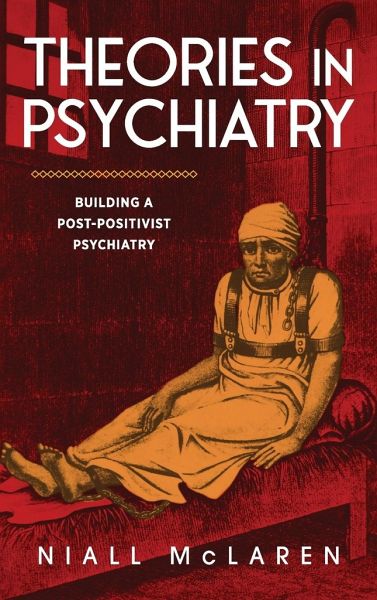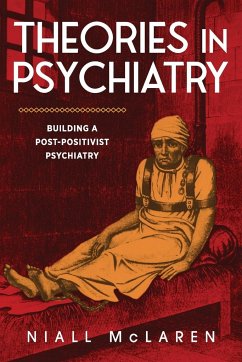
Theories in Psychiatry
Building a Post-Positivist Psychiatry
Versandkostenfrei!
Versandfertig in 1-2 Wochen
35,99 €
inkl. MwSt.
Weitere Ausgaben:

PAYBACK Punkte
18 °P sammeln!
Psychiatry has to be taken seriously. An ever-increasing proportion of the population are prescribed long-term, powerful psychiatric drugs on opinions only, with no evidence of brain pathology. People who have broken no laws can be taken from their homes, locked in cells, stripped and drugged indefinitely, leaving them no practical means of regaining their civil rights. Niall McLaren shows that modern psychiatry is in a state of theoretical disarray. By analysing and comparing all current theories of mental disorders, he shows that either they don't exist in a scientific form or they are incap...
Psychiatry has to be taken seriously. An ever-increasing proportion of the population are prescribed long-term, powerful psychiatric drugs on opinions only, with no evidence of brain pathology. People who have broken no laws can be taken from their homes, locked in cells, stripped and drugged indefinitely, leaving them no practical means of regaining their civil rights. Niall McLaren shows that modern psychiatry is in a state of theoretical disarray. By analysing and comparing all current theories of mental disorders, he shows that either they don't exist in a scientific form or they are incapable of being developed to that point. Further, he shows that theories of mind in philosophy cannot fill psychiatry's theoretical void. Anybody with an interest in mental disorders will be greatly assisted by seeing just how the various attempts at theories fit together, and why they all fail. "Contemporary psychiatry is in theoretical crisis. This book brilliantly critiques the misguided theories presently leading the profession into a philosophical and practical quagmire. It shows how the profession's obsession with biological determinism is a serious danger to patients, as well as to the profession's future. By exposing the philosophical errors that undermine contemporary psychiatry's fundamental duty to heal anguished minds, it makes a profound case for transforming psychiatry from a reductive medical science into an effective human science. This book deserves a very wide readership." -- Dr Allan Patience, University of Melbourne "I consider Niall McLaren's work a very valuable contribution. It fills a major gap in the theory of mental disorders and will appeal to anybody with an interest in the field." -- Assoc. Prof. Carolyn Quadrio, University of New South Wales From Future Psychiatry Press














